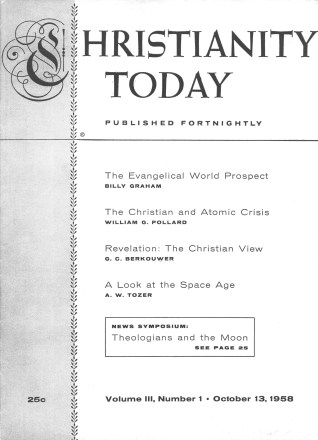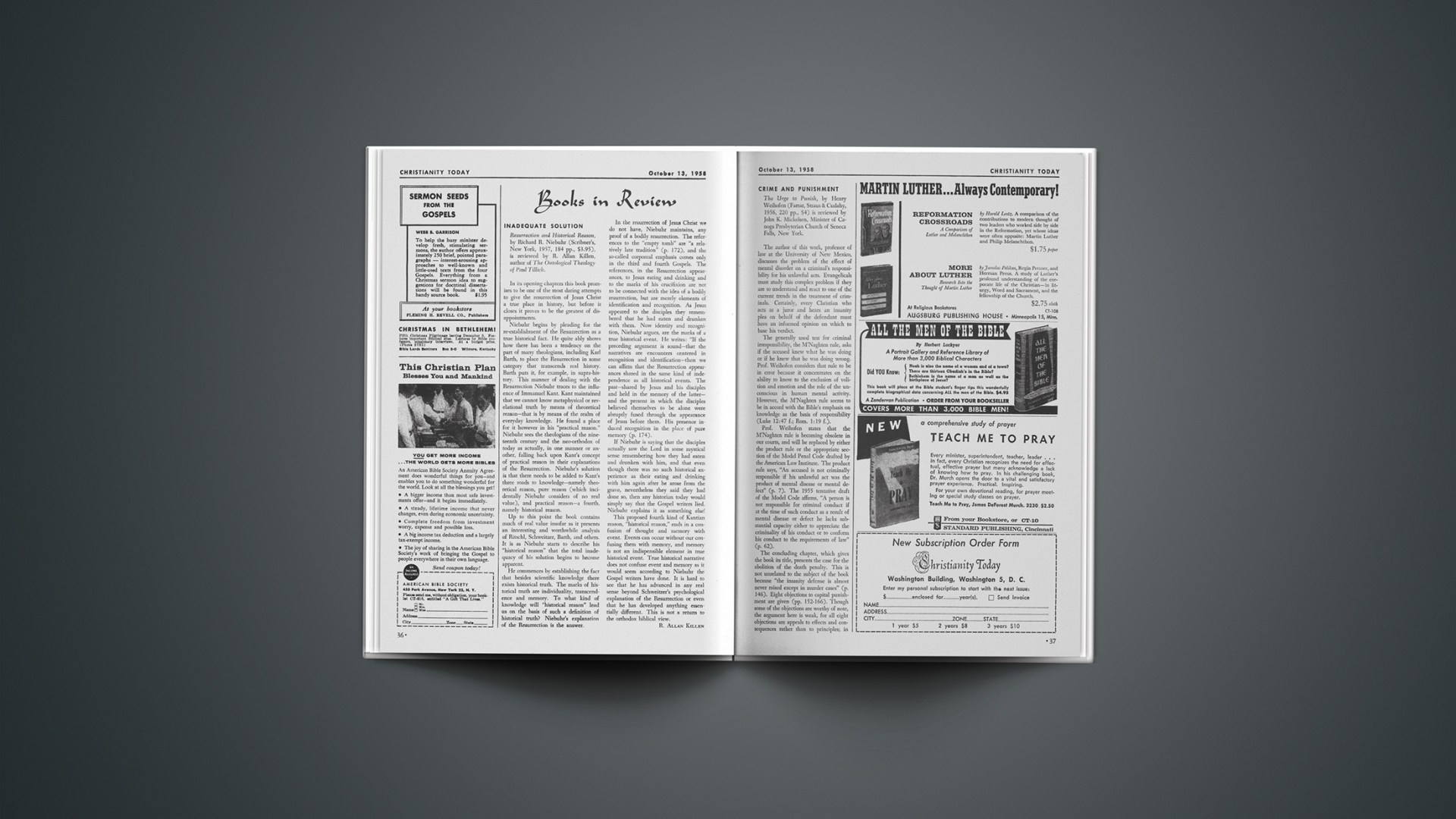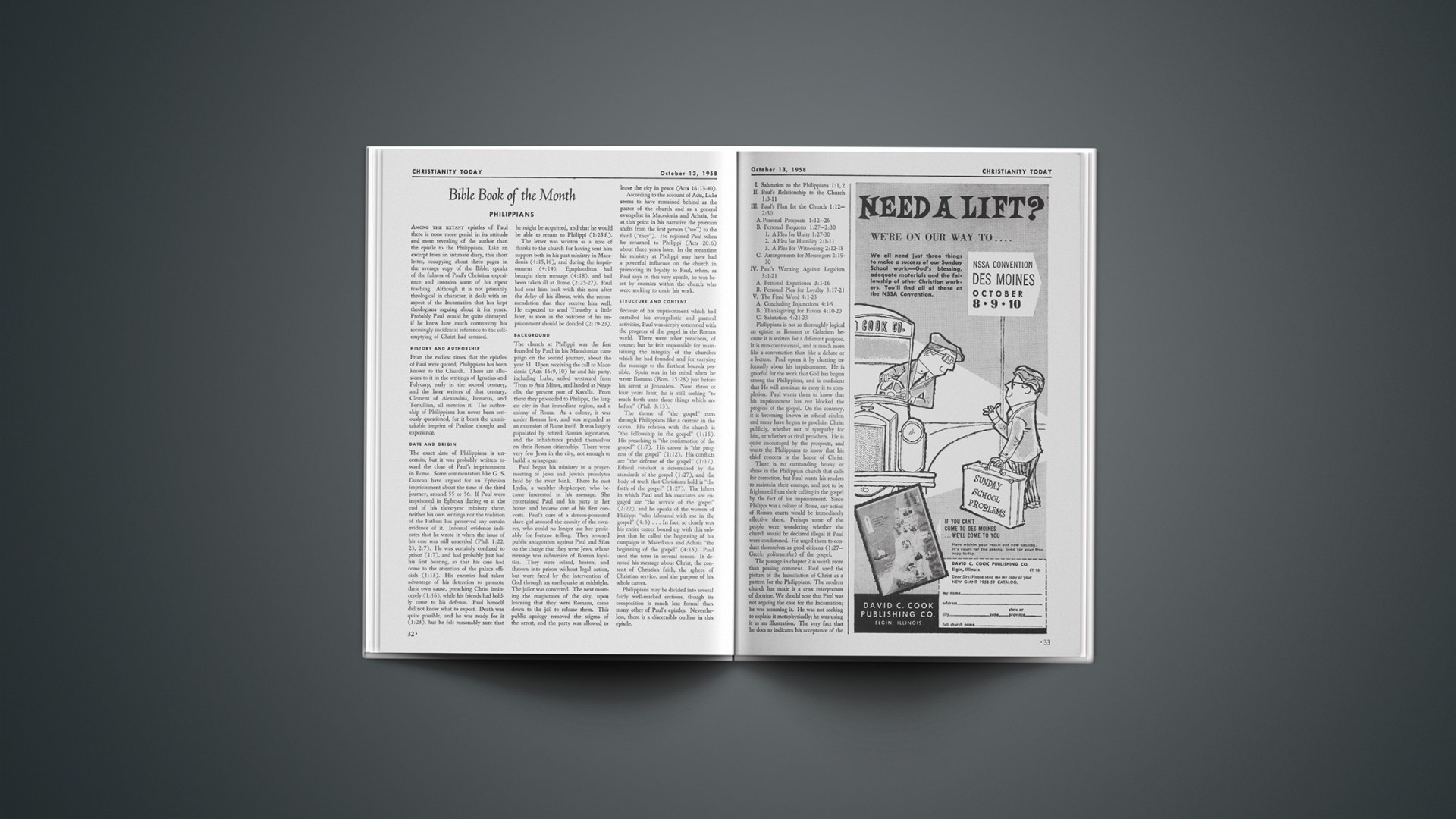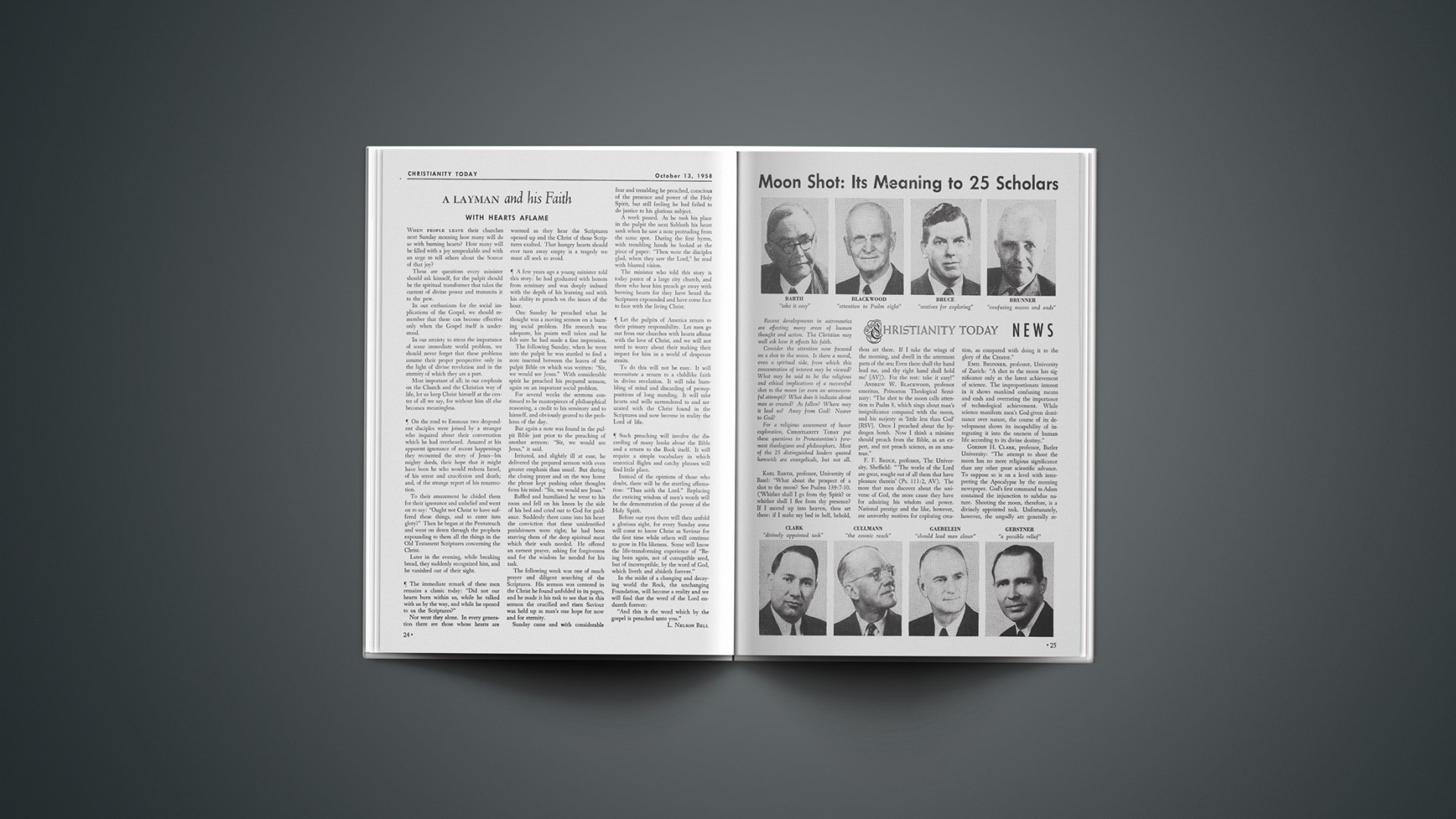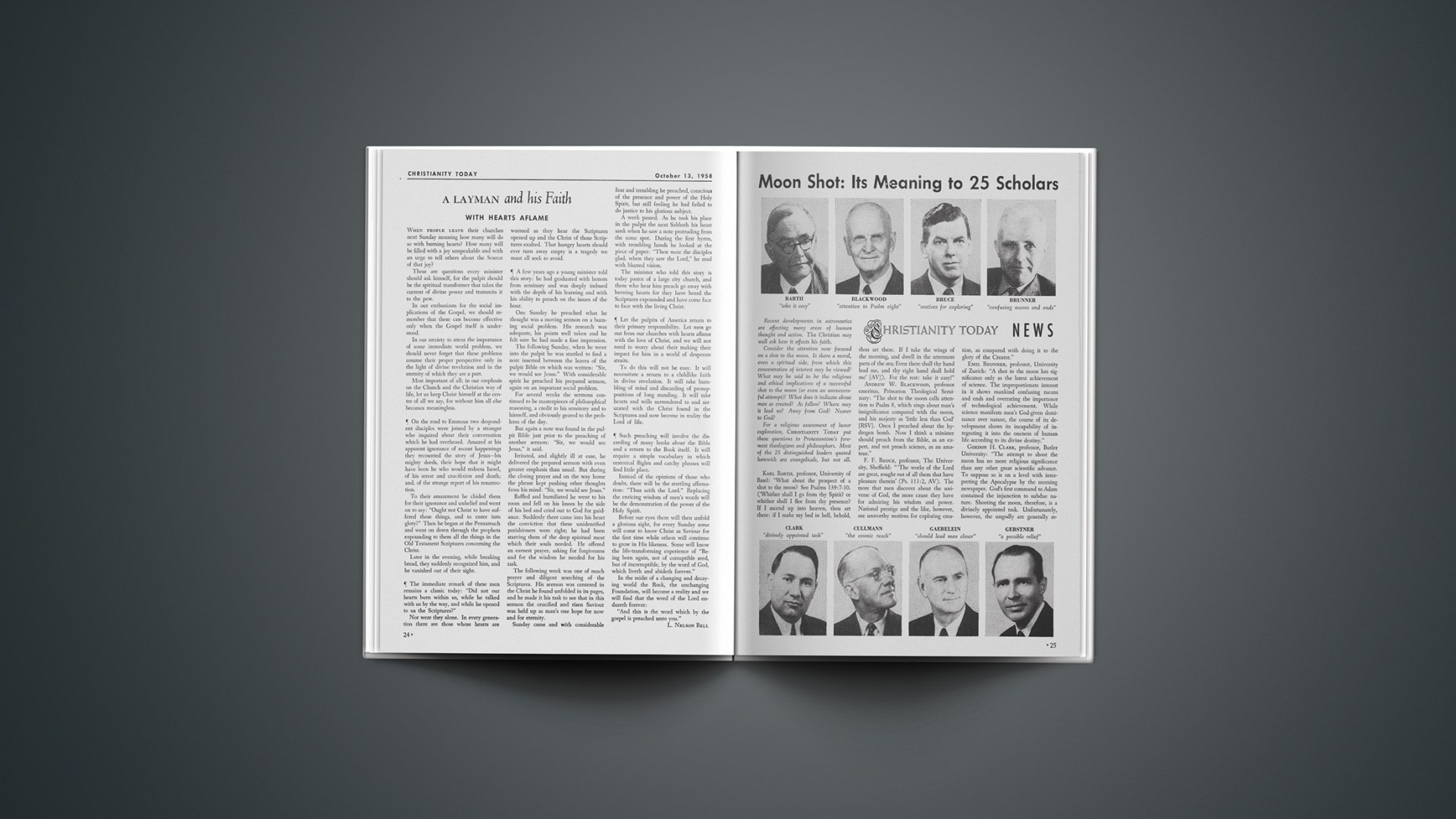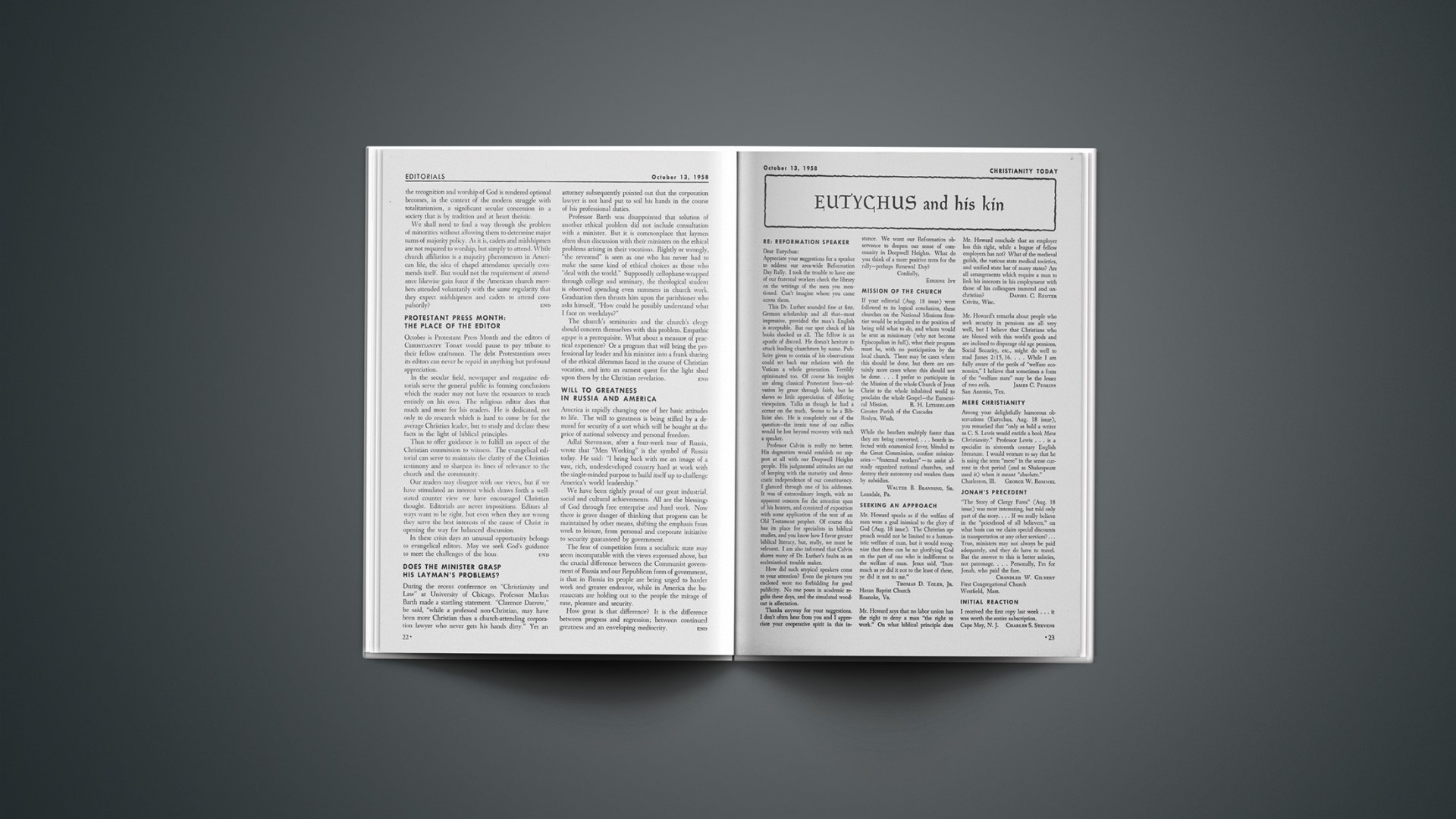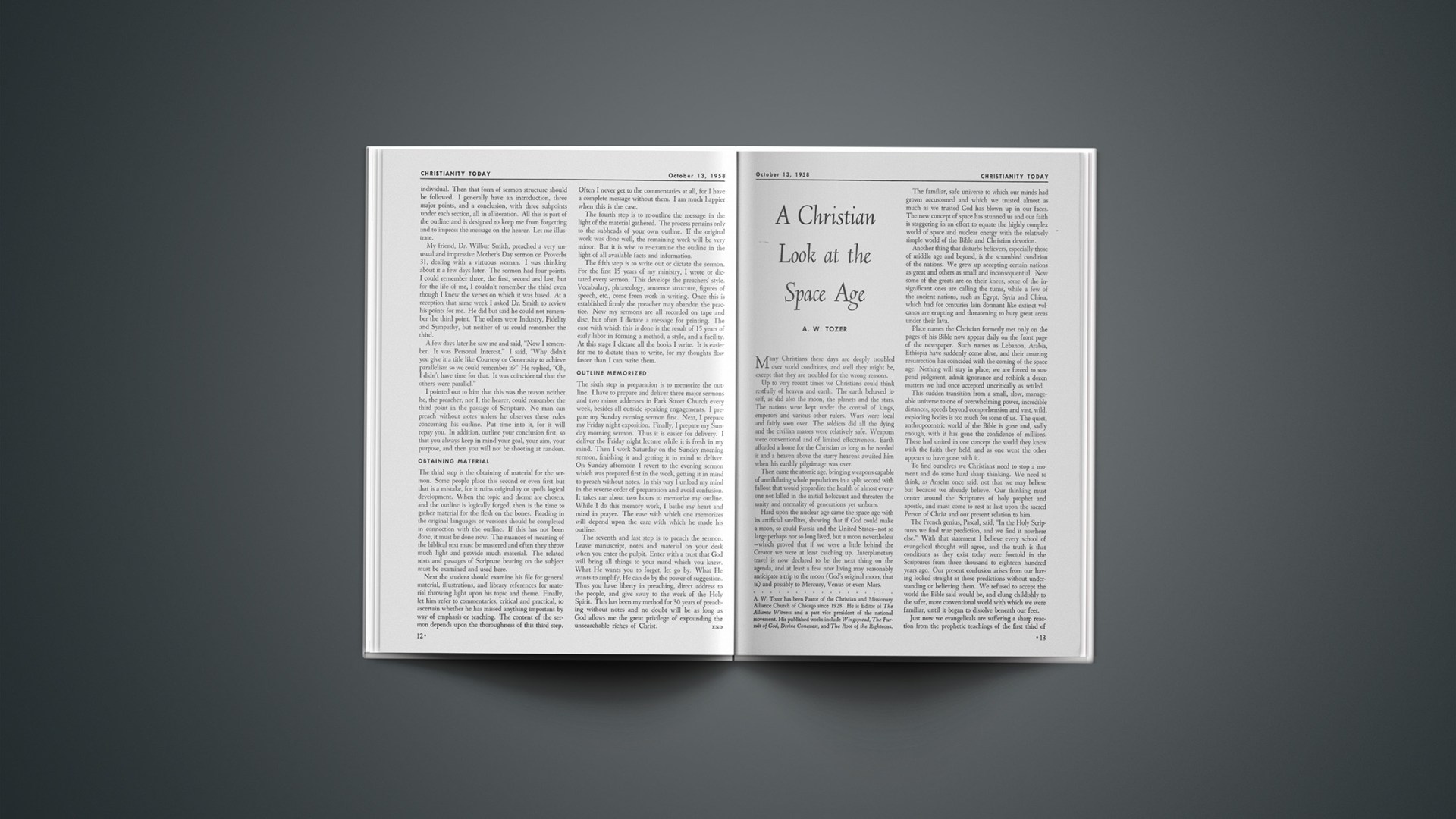A Swedish pastor by the name of Olov Hartmann has written a book called Holy Masquerade and with it has set off considerable excitement in Sweden. There are those who bitterly criticize the book, but there are as many who report the reading of it as a liberating experience. The book has a lot to say about the kind of Christianity practiced by some in the environment of the Swedish State Church. But it clearly has a message that reaches beyond the borders of Sweden.
The big question that the book asks is the old one about whether a man practices what he preaches. The material of the book is taken from the parsonage of a preacher who happens to be married to an unbeliever. The unbelieving wife keeps a diary. The diary is the substance of the work. The mistress of this manse turns out to be a shrewd student of her husband’s words and his deeds. In her diary she unmasks her husband as a preacher whose words are empty of accompanying life, whose sermons are full of compromise and are really mere form without content.
She is a careful listener to every sermon. Then she surveys her husband’s life from the perspective of his pretty homilies. She claims to be making an earnest search for identity in his preaching and his life. She fails to find it. So she sets out to show that the Christianity she hears preached is worthless. She wants to know what her husband means when he talks about the “presence of Jesus Christ” in one’s life. And she wants to know what her husband really does believe when he tells her that one must not construe the dogma of the church too literally. Meanwhile she watches her husband being caught up in the details of organizational work and in the subtleties of making a career for himself. She suspects that her husband is not following the demands of his calling, but the dictates of the quest for popularity. His sermons always come off neatly. But they always leave echoes of unreality.
Finally, her observations turn to fury. “To me the whole thing is poison. My whole being revolts against it. But it must be more than revolt. I declare war against this masquerade.” Her diary, thus, becomes an angered charge. The book, which uses the diary as a literary device, is being called a scandal in Sweden.
Author-pastor Hartmann adds two chapters following the diary. The first of these is the report of a judge on a fire which destroyed the church pastored by the fictional preacher, a fire in which the authoress of the diary is fatally burned as she tries to salvage a statue of Christ from the building. The other chapter is the preacher’s own reaction to his wife’s diary, which he discovers after her death. It is his self-justification, a mealy-mouthed attempt to diagnose his wife’s troubles as “confusion of the spirit,” an ailment about which he says he has read a good deal of literature. The preacher’s feeble effort to justify himself only serves to underscore the validity of his wife’s accusation.
The book, written by a man who is himself a Swedish pastor, has understandably aroused much emotional reaction. The intent of the work is clear enough. It warns against nominal Christianity and unveils its demonic character. It is true that the diary mocks at many of the church’s cherished doctrines. This alone is setting off much of the adverse reaction to the book. But it is just as true that the diary succeeds in demonstrating how Christianity itself can become something close to blasphemy. Many readers find the volume a necessary warning against unreality and hypocrisy, against the terrible dualism that can exist between word and deed, doctrine and life.
The author does not mean to stand behind all that the chronicle contains. The preacher’s wife is anyone who as an unbeliever is trying to understand Christianity and to find out whether it is really meant to be taken seriously. The book is really not profane. It raises a profound question, that of the reality of the Christian life. This is a question which always confronts the church. It is the question which faces every believer: does my life become an occasion for the blasphemy of God’s name because of the contradiction between what I say and how I live? Not he who says Lord, Lord, but he who does the will of My Father who is in heaven.
The sharp pointedness of the treatise hurts most because it is written as the observation of a person who lives with a nominal Christian. Such close-hand study is often more accurate than the kind written from a distance. The book, in spite of the objections one may level against details, is a gripping witness to a desperate groping for reality and integrity, for genuine Christian living. That it is concerned with a preacher only gives the theme a sharper accent. It is precisely those who face the world with the name of the Lord on their lips who are most closely scrutinized as to whether their lives establish what they teach. There is nothing worse than the career of an evangelist played off against a background of inconsistent living.
The Word of God has much to say about the dangers of the impressive word. Nowhere does the Gospel warn more urgently than it does against Pharisaism. Pharisees were people who had much religion, who were steeped in the law. We read that they thought they were serving God. But the essential thing, love, was lacking. Their lack of love was demonstrated in the kind of lives they lived. Christ’s “Woe unto you” that rang out against the Pharisees still forms a call of the Lord to integrity of life. The call sounds to us, lest we cause men to reject the Gospel because of what they see in our lives. The preacher is not called to proclaim anything about his own holy life. But as he preaches the Gospel the holiness of his life must be transparent in his preaching. In the Church of Jesus Christ something of what Zechariah wrote must become actual. “In those days it shall come to pass, that ten men shall take hold out of all languages of the nations, even shall take hold of the skirt of him that is a Jew, saying: We will go with you; for we have heard that God is with you” (Zechariah 8:23).
The danger of word-deed is felt as keenly by Paul as by anyone in the Bible. He writes, “Thou therefore which teachest another, teachest thou not thyself?” (Romans 2:21). Serving the Gospel of Christ in the world is really a noble and holy office. But the Lord calls the whole man into his service, not merely the mouth. His witnesses must be free of the dualism that forms occasion for blasphemy. This is doubtless the intent of the Swedish pastor’s book. It is a summons to sober reflection wherever preachers stand up to testify that the darkness is passing away and that the true light is already shining. “… because the darkness is past, and the true light now shineth” (1 John 2:8).


